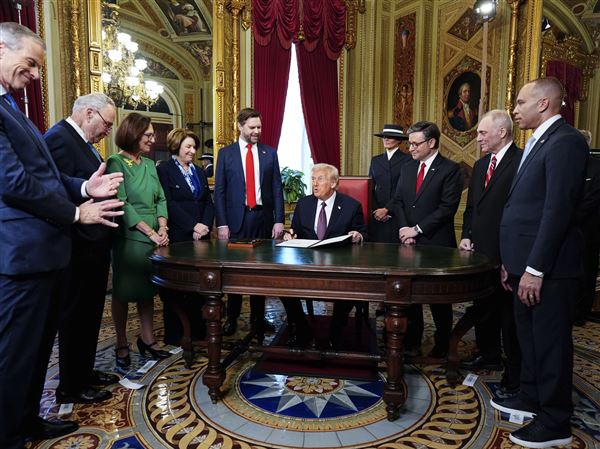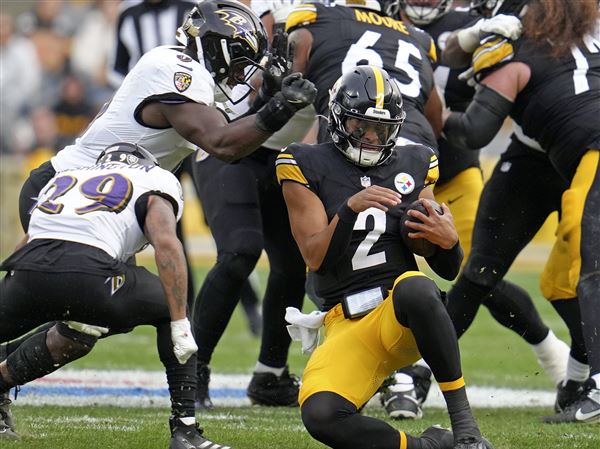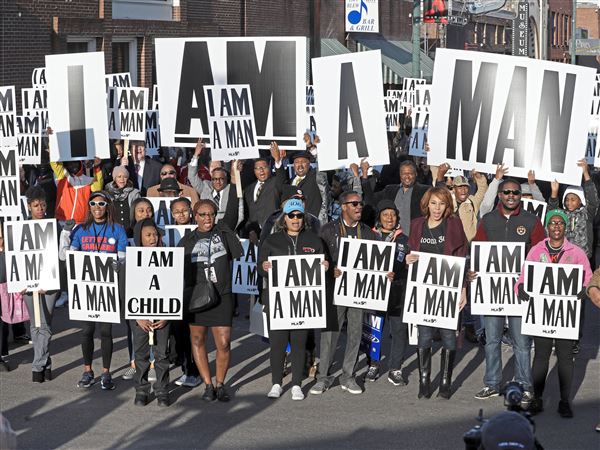Jesse Seager was mortified when he found out that what he was doing was wrong.
An audit by the U.S. Department of Labor found the system his restaurants had put in place for sharing tips was not in compliance with federal law.
Mr. Seager said he was trying to do what was fair for all of the employees at his two restaurants, Point Brugge Cafe in Point Breeze and Park Bruges in Highland Park, where tips are collected by the restaurant and credited to the appropriate employees. Then the tips would be distributed in paychecks to the individual servers, with a percentage pulled out to be given to the bartenders, the hostesses and the dishwashers.
It was the dishwashers that got him in a jam.
The Department of Labor, it turns out, has rules about how restaurants can structure tip sharing and what those businesses can demand of their employees' tips.
Federal minimum wage is $7.25 per hour for the first 40 hours in a week. However, the law allows employers to pay employees who also receive tips less than the standard minimum wage. In Pennsylvania, that would be $2.83 an hour.
Here's the caveat: If you pay an employee less than the federal minimum wage, then you can't take back the money they make in tips. That money is theirs.
It is not to be used to cover shortages in the register, broken plates, the cost of uniforms or even for corkscrews. Those costs are the costs of doing business and they are to be placed on the restaurant ownership, not the wait staff.
While Mr. Seager's restaurants violated the rules on the register shortages a handful of times over a two-year period, it was the pooling of tips that was the big problem -- and it's why he had to pay out $37,719 to 39 employees. The Department of Labor announced last month that he had paid the entire amount in full.
Because the restaurants are small, Mr. Seager said, they don't have dedicated staff members to bus the tables. Instead, the staff all chips in, with dishwashers stepping in to carry the bus tubs and even clearing tables when needed. Hostesses were pitching in, too, fetching water and tableware and clearing dishes when diners were done.
Gone are the days when a waiter walked home, or to the nearest bar, with a wad of cash in his pocket from tips. Now, at least at restaurants with computer systems, the tips are all logged and recorded, and then paid out on pay day.
In Mr. Seager's payroll system, tips were included in paychecks so that the correct amount would be included for income and Social Security taxes.
The system worked out in some ways, he said, because when the auditor from the Department of Labor showed up, all of the information she needed was readily available.
That's how she came to the conclusion that he needed to pay back his employees $37,719, which he did right away.
"It hurt," he said of the payment. "We had what we thought was a fair divvying up to the dishwashers."
Once he found out the dishwashers, who were already paid above minimum wage, would be washed out of tip money, he raised their pay to make up for the loss.
Mr. Seager's restaurants were never fined.
Brian Heeter, the assistant director in the Pittsburgh office of the Wage and Hour Division of the U.S. Department of Labor, said Mr. Seager was cooperative and complied with the rules.
Mr. Heeter said the rules allow an employer to mandate that employees pool tips for people who work on the floor with customers.
Mr. Seager said the audit process showed him that "table time" was key in determining who could receive tips.
However, Mr. Heeter said, employees in the back of the house -- such as cooks, dishwashers and janitors -- must be paid at least minimum wage, and employers cannot direct that servers give over some of their tips to them.
Mr. Seager said he was happy that the money he was forced to give up went to his staff, instead of fines paid to the federal government.
Mr. Heeter said such violations of the Fair Labor Standards Act are fairly common in the restaurant industry.
Also, while Mr. Heeter said restaurateurs can require all of the staff to be dressed in the same color, such as black pants with a white shirt, anything beyond normal street clothes, such as an apron or a tuxedo shirt, is considered a uniform, and the cost is to be borne by the employer.
That was not a problem at Mr. Seager's restaurant, where the employees dress in casual street clothes.
First Published: December 3, 2012, 10:00 a.m.

















